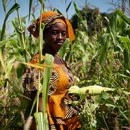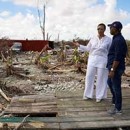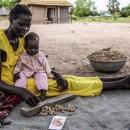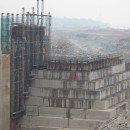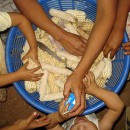Friday, June 9, 2023
News and Views from the Global South
Indigenous Rights
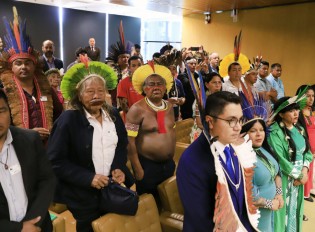
A 1904 Massacre Could Help Save the Future of Indigenous Peoples in Brazil
Children were thrown into the air and stabbed and cut with knives and machetes. The attackers first opened fire on the victims of the massacre before finishing them off with knives so that none of the 244 indigenous people of the village would survive. The 1904 massacre permanently marked the Xokleng people and may play a decisive role in the future of the native peoples of Brazil.
Chile: New Constitution in the Hands of the Far Right
On 7 May, Chileans went to the polls to choose a Constitutional Council that will produce a new constitution to replace the one bequeathed by the Pinochet dictatorship – and handed control to a far-right party that never wanted a constitution-making process in the first place.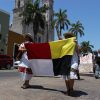
Government Financing for Mayan Train Violates Socio-environmental Standards
Mexico’s development banks have violated their own socio-environmental standards while granting loans for the construction of the Mayan Train (TM), the flagship project of the presidency of Andrés Manuel López Obrador.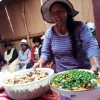
Andean Indigenous Women’s Knowledge Combats Food Insecurity in Peru
Paulina Locumbe, a 42-year-old peasant farmer who lives in the Andes highlands of southern Peru, learned as a child to harvest and dry crops, one of the ancestral practices with which she combats the food insecurity that affects millions in this Andean country.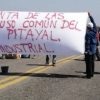
Opposition in Mexico to Mega-Industrial Model
In March 2021, the community assembly of the municipality of San Blas Atempa, in the southern Mexican state of Oaxaca, approved the sale of 360 hectares for the creation of an industrial park. But part of the community opposed the initiative due to irregularities, such as the falsification of signatures of supposed attendees, including those of people who had already died.
The Sami People’s Fight Against Norwegian Windmills
There are 151 wind turbines and more than 130 kilometres of connection routes and power lines on the Fosen peninsula, 530 kilometres north of Oslo. Norwegian judges say that they should not be there, and the owners of those lands since time immemorial do too.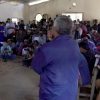
Indigenous Conflicts over Land Spread, Fueling Debate in Argentina
In 1994 Argentina recognized in the constitution the ethnic and cultural pre-existence of indigenous peoples. However, enforcement of respect for their rights has fallen short and almost 30 years later the question of land is generating growing conflicts, which sometimes pit native communities against the rest of society.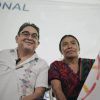
Racist Political System Thwarts Candidacy of Mayan Woman in Guatemala
Centuries of racism and exclusion suffered by indigenous peoples in Guatemala continue to weigh heavily, as demonstrated by the denial of the registration of a political party that is promoting the presidential candidacy of indigenous leader Thelma Cabrera in the upcoming general elections.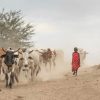
Tanzania Should Halt Plan to Relocate Maasai Pastoralists
Tanzania’s policies on conservation and its ongoing impacts on Maasai people in Ngorongoro district highlight how communities historically marginalized by oppression still wrestle with colonial policies.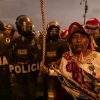
Privilege and Centralism in Lima Goad Protesters in Peru
The current political and social upheaval in Peru is not a temporary problem, but has to do with deeply-rooted inequality and social hierarchies, according to historian José Carlos Agüero.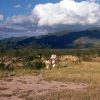
Protection for Indigenous Peoples Runs Up Against Hurdles in Mexico
Tatei Haramara, one of the sacred sites of the Wixárika indigenous people in the state of Nayarit in northwestern Mexico, has shrunk in size from its original area and is suffering from a lack of legal protection.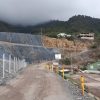
Pact Protecting Environmentalists Suffers Threats in Mexico
In the municipality of Papantla, in the southeastern Mexican state of Veracruz, the non-governmental Regional Coordinator of Solidarity Action in Defense of the Huasteca-Totonacapan Territory (Corason) works with local communities on empowering organizations, advocacy capacity in policies and litigation strategies.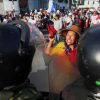
Peru’s Democracy at a Crossroads
On 25 January, roughly six weeks after being sworn in following her predecessor’s removal, Peruvian president Dina Boluarte finally recognised that elections were the only way out of political crisis. Elections were rescheduled for April 2024, much earlier than the end of the presidential term she’s been tasked with completing, but not soon enough for thousands who’ve taken to the streets demanding her immediate resignation.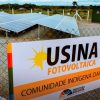
Solar Energy Useless Without Good Batteries in Brazil’s Amazon Jungle
“Our electric power is of bad quality, it ruins electrical appliances,” complained Jesus Mota, 63. “In other places it works well, not here. Just because we are indigenous,” protested his wife, Adélia Augusto da Silva, of the same age.
Chile’s Mapuche Indians Hurt by Rejection of a Plurinational Constitution
Mapuche indigenous leaders were hit hard by what they see as a collective defeat: the rejection in a September referendum of a plurinational, intercultural constitution proposed to Chile by an unprecedented constituent assembly with gender parity and indigenous representatives.
Digital Treatment of Genetic Resources Shakes Up COP15
In addition to its nutritional properties, quinoa, an ancestral grain from the Andes, also has cosmetic uses, as stated by the resource use and benefit-sharing permit ABSCH-IRCC-PE-261033-1 awarded in February to a private individual under a 15-month commercial use contract.
Solar Energy Benefits Children and Indigenous People in Northern Brazil
Solar energy is booming in Roraima, a state in the far north of Brazil, to the benefit of indigenous people and children in its capital, Boa Vista, and helping to provide a stable energy supply to the entire populace, who suffer frequent electricity shortages and blackouts.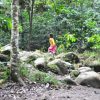
We Indigenous Peoples are Rights-Holders, not Stakeholders
After four failed rainy seasons, the land of the Maasai has withered. The worst drought in 40 years is a slow-motion storm of devastation in the Greater Horn of Africa, ruining the livestock, the communities, the Maasai way of life. Their cattle have been their greatest source of wealth and nutrition, but with grazing lands shriveled from the dry heat and their livestock emaciated, the entire region is in peril.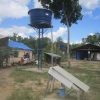
A Little Land Helps Indigenous Venezuelans Integrate in Brazil
A group of Warao families are, through their own efforts, paving the way for the integration of indigenous Venezuelans in Brazil, five years after the start of the wave of their migration to the border state of Roraima.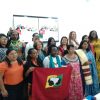
Indigenous Peoples Have Their Own Agenda at COP27, Demand Direct Financing
Indigenous peoples are no longer content just to attend as observers and to be seen as victims of the impacts of the current development model, at the 27th Conference of the Parties (COP27) on Climate Change. That is why they came to the summit in Egypt with an agenda of their own, including the demand that their communities directly receive funding for climate action.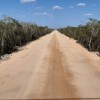
Mexican Environmental Prosecutor’s Office Dodges Charges against Mayan Train
A beige line slashes its way through the Mayan jungle near the municipality of Izamal in the southeastern Mexican state of Yucatán. It is section 3, 172 kilometers long, of the Mayan Train (TM), the most important megaproject of President Andrés Manuel López Obrador's administration.Next Page »

